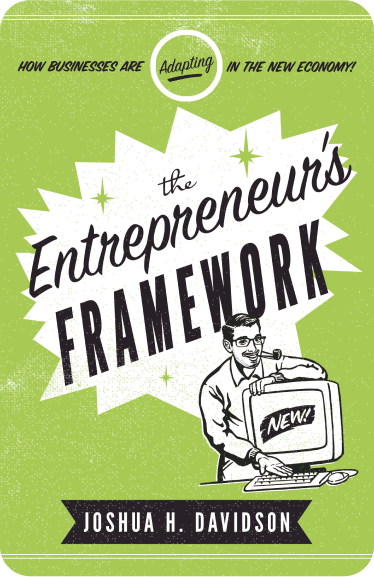In order to create a successful startup, you need to build a great brand. Everyone knows that startup branding is important, but what does that actually mean?
What does it mean to take a strong and smart approach to startup branding from day one?
After all, it’s a lot easier to build something right from the ground up than it is to pile things on top of a shaky foundation.
Let’s take a look at how you can do startup branding right, starting today.
Start with the Fundamentals
This might seem obvious, but it’s rarely put into practice. Often, especially in the early days of startups, there are a few people, or maybe even just one person, doing absolutely everything.
When one or two people are doing everything, sometimes important things can slip through the cracks.
It is not unusual for young startups to struggle with potentially hundreds of questions and decisions.
These include things like:
What colors should we use? Which social platforms should we post on?We need a landing page, but what should it say?
If they knew their brand from the outset, because they decided on strong fundamentals early on, a lot of these things would not be an issue at all.
If you know who your brand is for and what it is trying to accomplish from day one, a lot of these decisions are made for you.
A Quick Example
To keep it very simple, say you have a mid-range ethical clothing startup app that sells basics to consumers.
How do you brand it? And why is it important to do so?
For one thing, almost every person on earth wears basics. Also, a lot of other companies do something like this already.
Without branding decisions made early on, there is nothing really for consumers, or your company, to grab onto that stands out.
Even making one decision early on, for example, “we want our brand to sound casual and approachable to reach Gen-Z” narrows things down a lot.
This one decision alone decides how your copy will sound across all channels.
It tells you who your audience is and where you would go online to reach them. It guides the kind of content marketing you will do.
Instead of approaching every decision with a lack of clarity, you will always know exactly who you are talking to, and why.
Marketing Expert Arielle Jackson’s Minimum Viable Brand Strategy

Arielle Jackson is First Round’s Marketing Expert In Residence. She is known for working to build brands like Patreon and her previous work to launch products for Google and Square.
According to Jackson, there are three parts of an effective minimum viable brand strategy.
Step 1: Define your Company Purpose
Arielle Jackson told First Round:
“When I work with early-stage startups, we always start with the company’s purpose. Why are you here? And why should people care?”
Again, this may sound incredibly basic, but if you are struggling to create a brand for your startup, you may be missing this key piece.
Or, perhaps you know your company’s purpose, but you have no idea how to communicate it in a simple way. This is the most important part of successful startup branding.
You should be able to paint an enticing picture for your ideal customer, or investor, in a minute or less.
If you are feeling lost, take the time to describe what your company does and why in only one paragraph. Then, once you have that, narrow it down to only one compelling sentence.
Step 2: Plot Out Your Product Positioning
“First the basics: What’s the thing that’s coming to market? What does it do? What category is it in? Who’s it for? Why should people care? Who are you playing up against? Then, your differentiation — the unique points that provide reasons to believe your product’s benefits, ones that the competing alternative cannot claim.”
Once you know your own company, purpose, and product, get to know your competition.
- What else is on the market right now?
- Which companies are out there?
- What are they offering?
- How is what you do different?
Nothing happens in a vacuum. Understanding your environment is key to strong startup branding from the outset.
Step 3: Cultivate Your Brand’s Personality
“This is how you show up, particularly in written copy, but it also informs visual identity. It’s the feeling you get from the company. If the company were a person, what would it be like? This gets everyone writing in the same way, and delivers a consistent look and feel.”
Again, without this core piece put into place from day one of your startup branding, everything is a lot harder.
Without a solid brand, how do you decide how to advertise? Who are you even trying to reach? What does your logo look like? What colors should everything be?
On a day-to-day level, say you want to run a company Twitter. If you haven’t decided on a company brand, what is the icon of the brand on Twitter? What is in the profile? What Tweets go out all day long?
Many companies send out multiple Tweets a day, almost every day.
Without any kind of brand identity and strategy, that’s dozens of times a week someone will have to struggle to figure out what to say on behalf of a company.
What Solid Startup Branding Can Do
However, it does not have to be that way. Let’s go back to the hypothetical startup that makes ethical mid-range clothing basics via app.
They want to have a casual and approachable brand that reaches Gen-Z.
How could this guide the social media posts that they publish?
For one, it means that they would likely focus on TikTok and Instagram over Twitter and Facebook, because those are the platforms that younger consumers prefer.
That is one huge decision to make, and it is made easily because they have narrowed and strengthened their startup branding focus.
On an even more basic level, all apps need to have copy in them. They need to talk to users, have clear labels, and give direction.
Since this brand has a friendly and down-to-earth tone, so will all of their app copy. Knowing this from the start means they will avoid massive headaches down the line.
Final Thoughts on Startup Branding
The key here is making important foundational decisions right from the start, so you can truly build something powerful.
Think about it, you can build a beautiful house, but if it is constructed on a shaky foundation, it won’t stand up for long.
Instead of making hundreds of decisions weekly for your startup with no clear direction forever, take the time to define your brand now. Especially if you plan to scale, this is critical.
What do you think? Comment below.
Since 2009, we have helped create 350+ next-generation apps for startups, Fortune 500s, growing businesses, and non-profits from around the globe. Think Partner, Not Agency.
Find us on social at #MakeItApp’n®

















